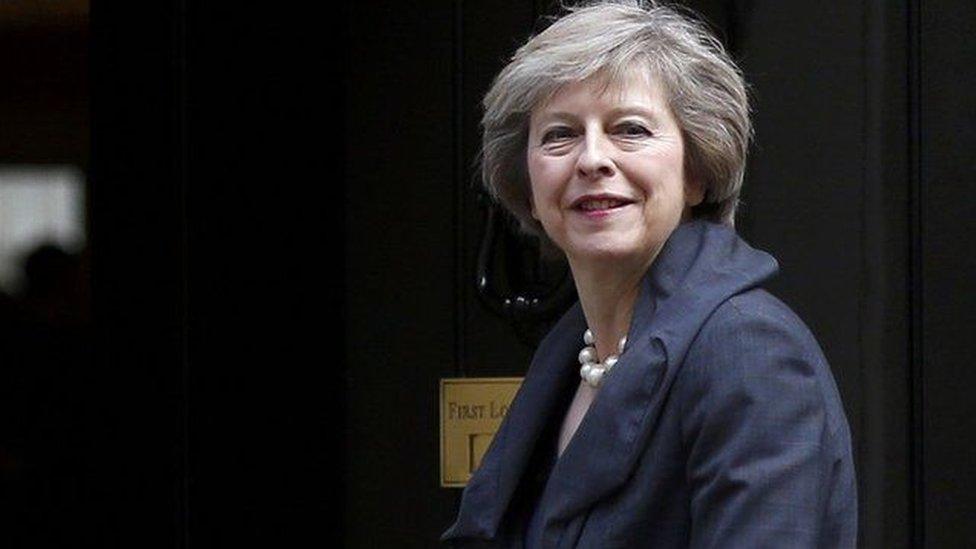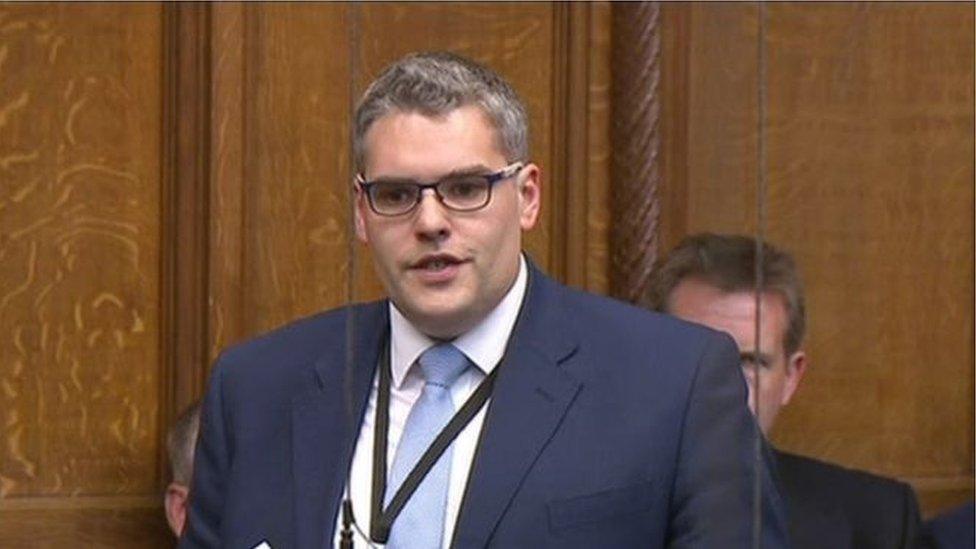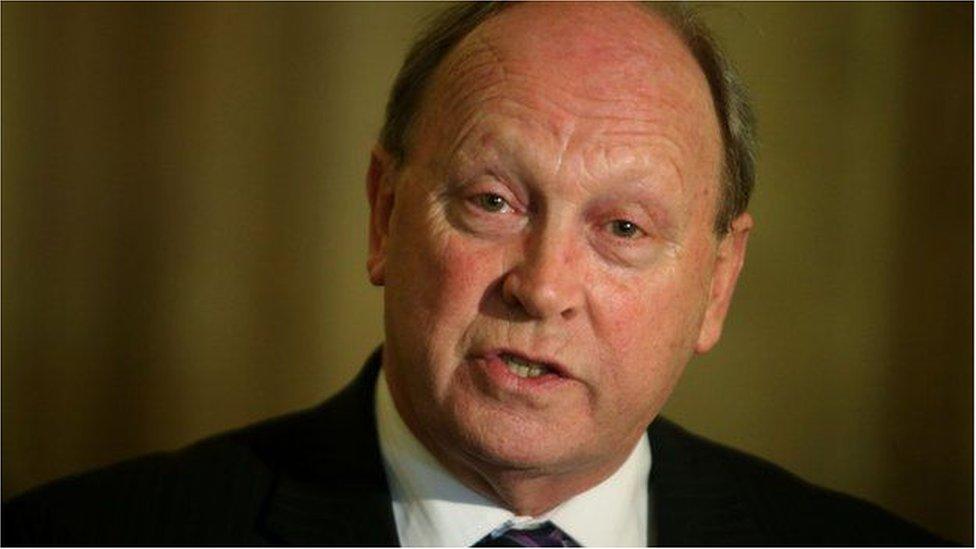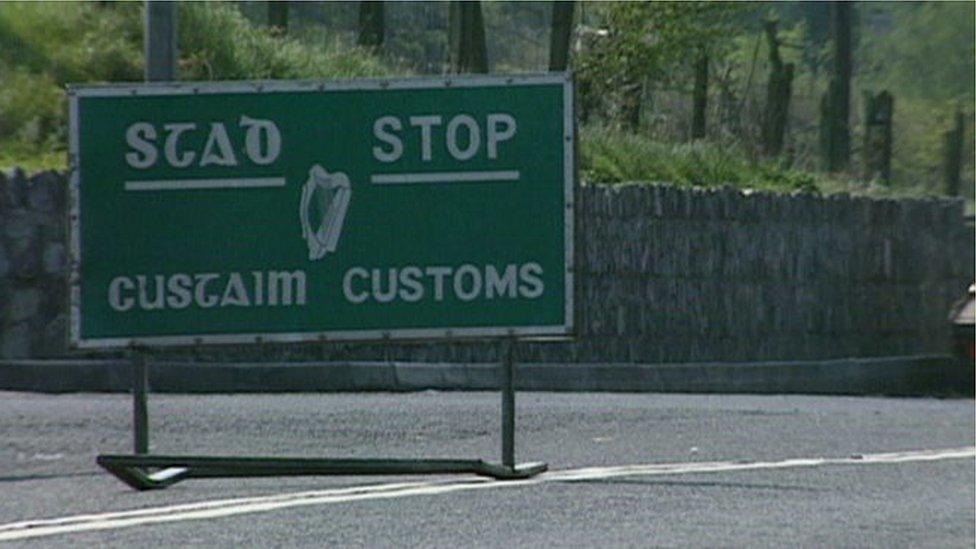Prime minster's Brexit letter raises eyebrows and questions
- Published

The emergence of Theresa May's letter to the first and deputy first ministers was a talking point at Stormont
The way Theresa May's letter on Brexit to Stormont Castle emerged raised a few eyebrows around the assembly.
A couple of weeks after using the Royal Prerogative to appoint a new press secretary, was it really the executive's considered media strategy to reveal important correspondence from Downing Street live on Radio Ulster's Nolan Show?
And only in the event that an SDLP MLA happened to ask a DUP MP whether the letter from the Prime Minister had arrived?
Surely if this was the plan, Stormont Castle could have saved themselves a lot of expense by appointing East Belfast MP Gavin Robinson as its press secretary?
The first minister brushed the complaints of opposition MLAs aside, insisting that the prime minister's letter had been published in the assembly library at the same time as it was released to the media.

DUP MP Gavin Robinson revealed the letter's existence during Radio Ulster's Stephen Nolan Show
A couple of hours after Arlene Foster spoke, the assembly library finally tweeted the prime minister's comments.
So much for the "inside the Stormont beltway" focus on how the letter was published.
Its contents appears, in the main, a restatement of UK government policy. The mantra of "no return to borders of the past" is now getting to sound very tired.
But, some Stormont sources pointed to the emphasis on the continued free movement of people and goods across the island of Ireland as worth noting.
Free movement of goods? Is that in the sense that lorries will be free to drive north and south unhindered or an indication that those goods will be free from customs tariffs? If the latter, then how would this equate with the UK potentially withdrawing from the European Single Market?

Jim Allister's TUV party are not happy with the prime minister's letter
Certainly the hard Brexiteers aren't happy with the prime minister's letter.
The TUV said any arrangements that "retains free movement of labour and goods only for Northern Ireland should be unacceptable to any unionist, because the practical effect would be to push the border back to the Irish Sea".
"Free movement of goods" the TUV argued "can only be secured for the whole UK, or not at all".
Equally, UKIP described Mrs May's letter as very worrying, claiming it "appears to be a capitulation to letting unlimited border crossing into the United Kingdom from anywhere - via the Irish Republic".
"We must press for clarification on Mrs May throwing open a porous border," the party added.

Governments in Dublin and London have said they want little change to how the border operates
Coming just a day after MLAs rejected "special status" for Northern Ireland within the EU, the Downing Street letter underlines the fact that - when it comes to the UK's departure from the EU - everything is still extremely tentative.
In England, car manufacturers and city traders are pressing their special cases for exemptions from the worst repercussions of a hard Brexit.
In Northern Ireland, food processors and cross-border businesses need to make their voices heard.
Both London and Dublin may want as little as possible to change on the island of Ireland after Brexit.
But, Theresa May and Enda Kenny will have to persuade other EU leaders of the merits of this approach and how it can be squared with fundamental changes in the UK's relationship with the rest of the EU.
Both leaders may get an opportunity to sketch out their thoughts at a Brussels summit they are due to attend later this week.